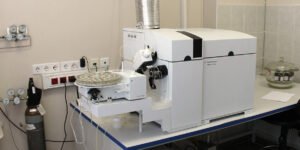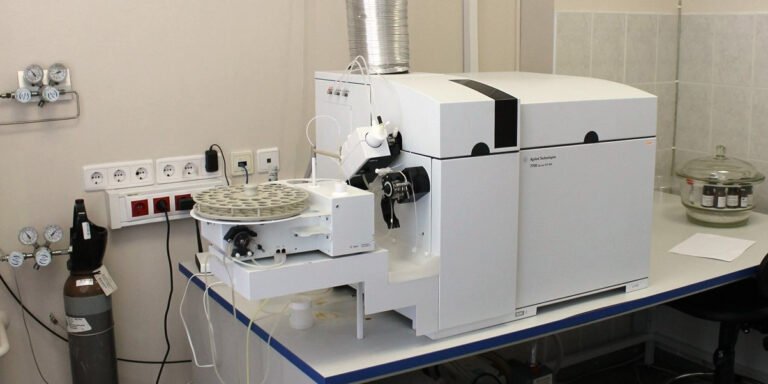Inductively coupled plasma mass spectrometry (ICP-MS) is a powerful analytical technique used for the detection and quantification of elements in a wide range of samples. It combines the sensitivity and selectivity of mass spectrometry with the high ionization efficiency and low matrix effects of inductively coupled plasma.
What is Plasma?
Plasma is the fourth state of matter, in addition to solids, liquids, and gases. It is a highly ionized gas consisting of charged particles such as ions and electrons. These charged particles can be generated by applying energy to a gas mixture, resulting in a high-temperature plasma. In ICP-MS, the gas mixture typically consists of argon, which is ionized to form a plasma state.
How does Inductively Coupled Plasma Mass Spectrometry work?
In ICP-MS, the sample is aerosolized and introduced into the high-temperature plasma. The elements in the sample are ionized and then separated based on their mass-to-charge ratio (m/z) in the mass spectrometer. The ions are then detected and quantified, providing information on the elemental composition of the sample.
Applications of Inductively Coupled Plasma Mass Spectrometry
ICP-MS has a wide range of applications in various industries such as environmental analysis, pharmaceuticals, food and beverage, and forensic science. It is a highly sensitive technique, capable of detecting elements at trace levels in complex matrices. Some common applications of ICP-MS include the analysis of metals, isotopes, and biomolecules.
Advantages and Limitations
ICP-MS offers several advantages over other analytical techniques such as atomic absorption spectroscopy and inductively coupled plasma optical emission spectrometry. These advantages include high sensitivity, wide dynamic range, and multi-element analysis capabilities. However, ICP-MS also has limitations, such as the need for specialized equipment and trained personnel, and the potential for spectral interferences.
The ICP-MS Instrument
The ICP-MS instrument consists of three main components: the plasma source, the mass spectrometer, and the detector. The plasma source ionizes the sample, the mass spectrometer separates the ions based on their m/z ratio, and the detector quantifies the ions. Each of these components plays a vital role in the overall functioning of the ICP-MS system.

Sample Preparation
Proper sample preparation is crucial for accurate results in ICP-MS analysis. The sample should be sufficiently homogenized and diluted to be within the dynamic range of the instrument. Acid digestion is often used to prepare solid samples for analysis. This involves dissolving the sample in a strong acid to bring all the elements into the solution.
Quality Control in ICP-MS
Quality control measures are essential to ensure the reliability of ICP-MS results. This includes the use of calibration standards, blank samples, and internal standards. Calibration standards contain known amounts of the elements of interest and are used to calibrate the instrument. Blank samples help to identify any potential contamination during sample preparation or analysis.
Troubleshooting and Maintenance
Regular maintenance and troubleshooting are necessary to keep an ICP-MS instrument in optimal working condition. This includes cleaning the plasma torch and cones, checking the vacuum system, and replacing worn-out parts. Troubleshooting may involve identifying and resolving issues such as signal drift, high background noise, or spectral interference.
Future Directions in ICP-MS
The field of ICP-MS is continually evolving, with new developments and innovations being introduced regularly. These include improvements in detection limits, reduction of interferences, and expansion of applications. For example, the development of collision/reaction cells and dynamic reaction cells has significantly improved the ability to resolve spectral interferences.
Conclusion
Inductively coupled plasma mass spectrometry is a versatile and powerful analytical tool for elemental analysis. With its high sensitivity, broad dynamic range, and multi-element capabilities, it is valuable in numerous industries and research areas. By understanding its principles, instrument components, and applications, users can effectively employ ICP-MS in their work. Thus, it is an indispensable technique for researchers and professionals in the field of analytical chemistry. So, keep exploring and harnessing the potential of ICP-MS to advance your research and analysis.
Visit to read more articles: Etho Zen


